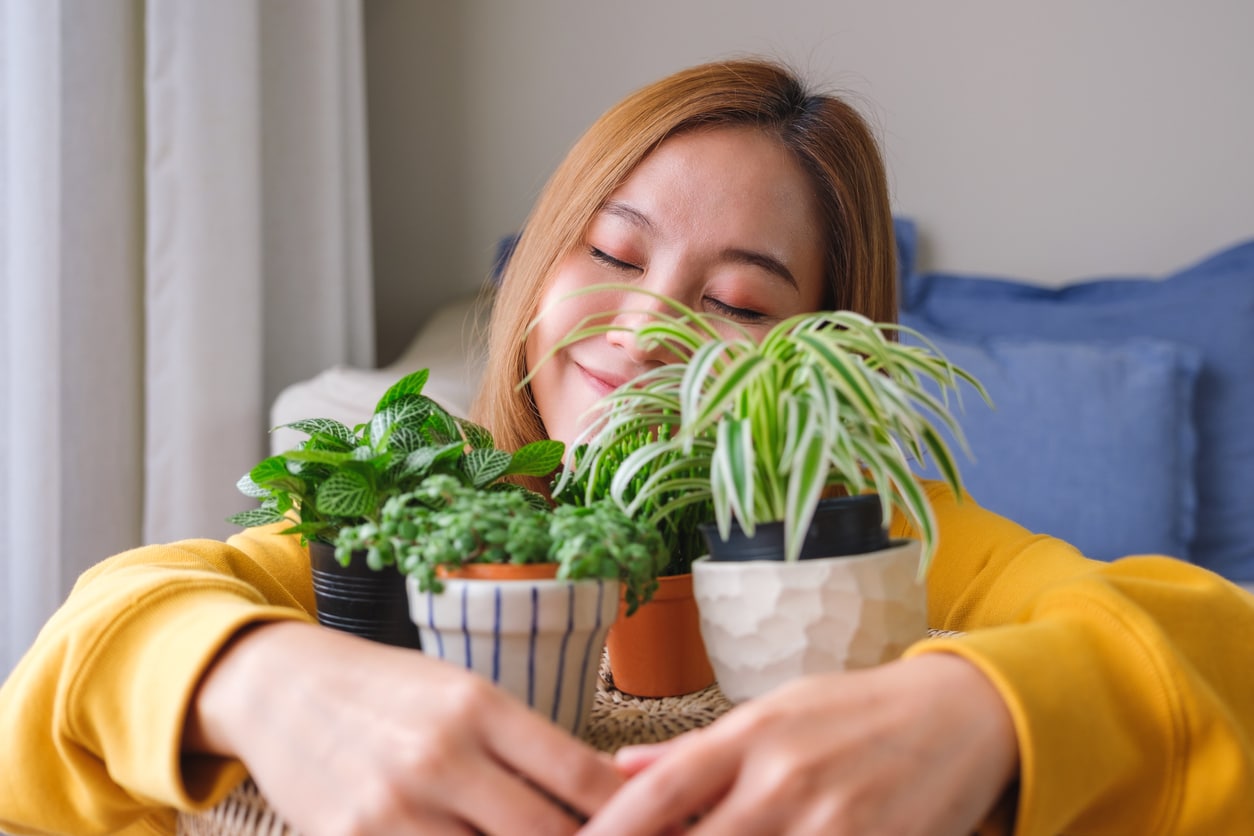More than 100 million people in the U.S. experience at least one type of allergy each year. An allergic reaction occurs when your immune system overreacts to a substance (allergen) it believes is harmful. Sensitivity to different allergens differs from person to person, but some common allergens include:
- Pollen or plant spores
- Fragrance
- Dust mites
- Pet dander
- Certain foods
- Certain medications
- Mold
You can encounter allergens anywhere, but one source you may not have considered is the plants in your home.
Indoor plants can brighten the room, freshen the air and make your house feel a little cozier, especially during those cold winter months. Some indoor plants, however, may be giving off more allergens than you realize.
To avoid an allergic reaction, consider which plants are safe for your home before your next big haul from the Roots and Shoots Nursery. Let’s look at a couple of reasons plants may be causing an allergic reaction and some allergy-friendly plants that are safe for your home.
How Do Plants Cause Allergic Reactions?

A couple of allergens indoor plants may give off include but are not limited to:
- Pollen. Avoid pollen-heavy plants, such as chrysanthemums and palms, if you are sensitive.
- Spores. Spores can produce allergic reactions similar to pollen. Spore plants to avoid may include ferns, mosses and more.
- Fragrance. Flowers and plants can make your house smell great but may not be a friend to those with fragrance allergies. If you are sensitive to fragrances, try swapping your fresh-cut flowers for a fun cactus.
- Sap. Some plants produce irritant sap, which can cause contact dermatitis or other allergic reactions. Avoid irritant sap plants such as weeping figs, philodendrons and more.
- Dust. Plants may gather a surprising amount of dust. Remember to dust the leaves of your plants often to avoid aggravating your allergies.
Allergen-Friendly Indoor Plants
You don’t need to avoid all indoor plants if you have allergies. An allergy skin prick or scratch test will help you make the final decision on which plants are safe for you, but a couple of allergen-friendly plants to consider may include:
- The dracaena. The dracaena plant is beautiful and well-known for trapping allergens in its leaves.
- The golden pothos. A golden pothos plant has big leaves that are easy to dust off, helping keep your home a dust-free zone.
- Succulents. Succulents are a popular, low-maintenance plant that can be a great addition to your allergen-free home.
Sensitivity to pollen, spores, fragrance, sap and dust will differ from person to person. To help ensure you choose safe plants for your home, contact Charleston ENT & Allergy today to schedule an allergy test.
